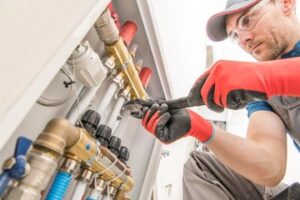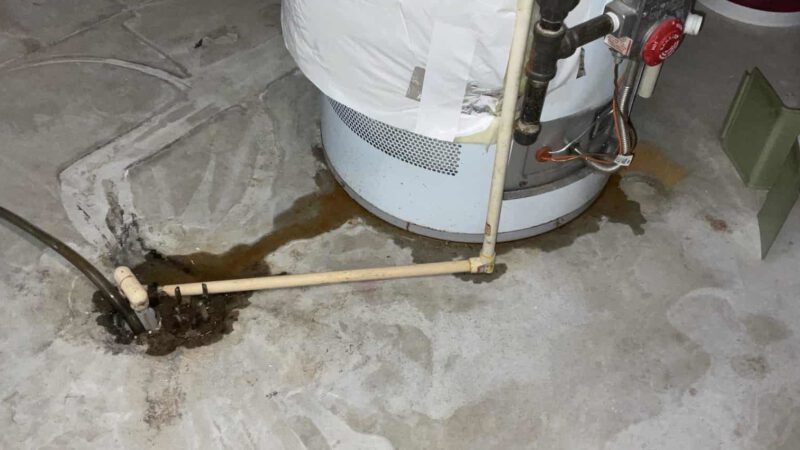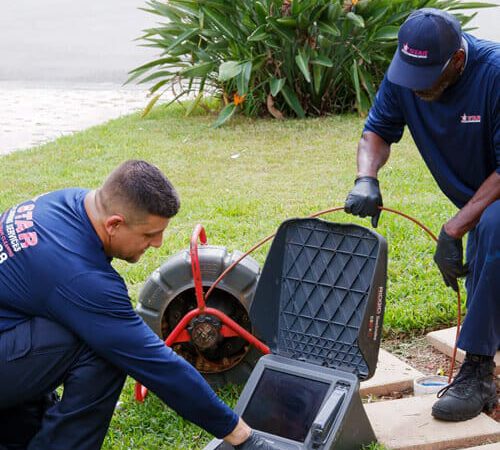The Essential Role of Plumbers in Modern Homes and Businesses
The Neighborhood Plumber is an essential professional in any community, offering expertise that ensures our homes and businesses function smoothly. These experts are responsible for installing, repairing, and maintaining the plumbing systems that handle water distribution, drainage, and waste removal.
Without plumbers, we would struggle with basic daily tasks like bathing, cooking, and cleaning. Their role has evolved over the years, requiring a blend of traditional skills and modern technological knowledge.
Plumbing systems are complex networks of pipes, fittings, valves, and fixtures that carry water to and from various areas of a building. They require careful planning and installation to function efficiently. A plumber’s job often begins with assessing the layout of the space and understanding the specific plumbing requirements of each area. From water supply lines to drainage systems, each part of the plumbing system must work together to ensure that water flows smoothly and waste is properly disposed of.
In residential settings, plumbers are commonly called upon to address issues such as clogged drains, leaky pipes, or water heater malfunctions. These problems can range from minor inconveniences to significant disruptions in daily life. A skilled plumber knows how to diagnose and repair these issues quickly to prevent further damage. They may also provide maintenance services to help homeowners avoid future plumbing problems, ensuring that systems remain in optimal condition.
Commercial plumbing, on the other hand, often involves more intricate systems that require specialized knowledge. Businesses typically have larger plumbing networks due to the higher demand for water and waste disposal. Plumbers in commercial settings must be able to work with more complex systems, including those in restaurants, factories, and office buildings. They are responsible for ensuring that water pressure is consistent, waste systems are functioning, and any plumbing-related safety regulations are met.
Emergency plumbing services are another crucial aspect of a plumber’s role. Issues such as burst pipes or sudden sewage backups can cause extensive damage if not addressed promptly. In these situations, plumbers must be available 24/7, ready to respond quickly to minimize harm. Their ability to handle these high-pressure situations with expertise and efficiency is what sets them apart from other trades.
Plumbers also play an essential role in ensuring the safety and quality of water in homes and businesses. Over time, pipes can corrode or accumulate debris, potentially contaminating the water supply. Plumbers are trained to detect and resolve these issues, ensuring that water remains clean and safe for consumption. Additionally, they are knowledgeable about the various types of piping materials, such as copper, PVC, and galvanized steel, each with its own advantages and limitations.
One aspect of plumbing that has gained increased attention in recent years is sustainability. As concerns over water conservation and environmental impact grow, plumbers are often called upon to install energy-efficient and water-saving fixtures. Low-flow toilets, water-saving faucets, and energy-efficient water heaters are just a few examples of plumbing innovations that help reduce water consumption. Plumbers must stay up to date with these advancements to ensure that their clients benefit from the most sustainable options available.
The training and qualifications required to become a plumber are extensive and involve both education and hands-on experience. In many areas, aspiring plumbers must complete a formal apprenticeship program, which includes a combination of classroom instruction and on-the-job training. This apprenticeship provides practical experience in plumbing installation and repair, as well as learning about local building codes and safety regulations. After completing the apprenticeship, plumbers often need to pass certification exams to demonstrate their proficiency.
Being a plumber requires a deep understanding of the systems they work with, as well as strong problem-solving skills. They must be able to troubleshoot issues effectively and find solutions quickly. Plumbing systems are often hidden behind walls or beneath floors, so plumbers must use their knowledge and experience to locate the source of the problem without causing unnecessary damage. This ability to diagnose and resolve issues is essential in providing efficient and cost-effective services to clients.
Another important aspect of plumbing is the ability to work with various tools and technology. Plumbers use a wide range of tools, including pipe wrenches, drain cleaners, and video inspection devices. These tools help them perform tasks ranging from tightening a loose connection to inspecting pipes deep within a building’s infrastructure. With the advent of new technology, plumbers also have access to advanced tools like infrared cameras that allow them to detect leaks or blockages without resorting to invasive methods.
Plumbing is also a field where preventative measures are crucial. Regular maintenance, such as flushing water heaters, checking pipe insulation, and inspecting drainage systems, can help prevent larger issues from developing. Plumbers often advise homeowners and business owners on how to maintain their plumbing systems and avoid expensive repairs. This preventative approach not only saves money but also helps extend the lifespan of plumbing systems.
The business side of plumbing also plays a significant role in the industry. Many plumbers operate their own businesses, managing everything from client relations to scheduling and billing. Being a successful plumber often requires more than just technical expertise; it also requires strong business acumen. From setting competitive prices to marketing their services, plumbing professionals must balance the demands of their trade with the logistics of running a business.
As plumbing systems evolve, so too must the plumbers who work with them. New building techniques and materials continually change the way plumbing systems are designed and installed. For instance, the introduction of tankless water heaters and the move toward more eco-friendly materials have altered the landscape of residential and commercial plumbing. Plumbers must adapt to these changes, ensuring that they are able to work with the latest technologies and provide the best solutions for their clients.
One of the challenges that plumbers face is the increasing complexity of modern plumbing systems. With the rise of smart homes and advanced technologies, plumbing systems are becoming more integrated with other home systems, such as heating, cooling, and even home automation. Plumbers are required to have an understanding of how these systems work together and how to troubleshoot issues that may arise. This added layer of complexity means that plumbers must continually expand their knowledge and skills to keep up with the times.
Another challenge for plumbers is ensuring that their work meets strict safety standards. Plumbing systems can pose significant health risks if not properly installed or maintained. For example, leaks or improperly installed waste systems can lead to contamination of the water supply. Plumbers must follow local regulations and codes to ensure that their work is safe for both the building’s occupants and the environment.
Customer service is an integral part of being a successful plumber. Clients rely on plumbers to provide timely, reliable service, especially when dealing with emergencies. Plumbers must be able to communicate effectively with their clients, explaining the problem and the proposed solution in clear, understandable terms. Good customer service helps build trust and ensures that clients will return for future services or recommend the plumber to others.
In conclusion, plumbers are indispensable to the proper functioning of our homes and businesses. They provide essential services that range from simple repairs to complex installations, all while ensuring that plumbing systems are safe, efficient, and reliable. With their diverse skill set, plumbers contribute not only to the comfort and convenience of their clients but also to the overall health and safety of the community. Whether through emergency repairs, routine maintenance, or the installation of modern plumbing systems, plumbers play a vital role in maintaining the infrastructure of everyday life.



